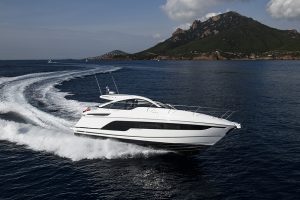Why use antifouling?
Anti-fouling your boat is never much fun, especially in winter. But it's vitally important if you want to protect your boat from the harmful effects of fouling on the hull.
The seas around many coasts contain slime and a mass of rudimentary animal and plant life forms, all competing for somewhere to live and grow.
Known as plankton, these tiny organisms include the larvae of literally billions of barnacles, mussels and other sea creatures, together with seaweed spores from around the world.
Plankton is most concentrated around our coasts, and in harbours and estuaries, where agricultural run off and water from sewage treatment works provides a rich source of food on which these organisms can thrive.
Indeed, plankton is often dense enough to be visible during the day and can sometimes be seen glowing on really dark nights.
Everything in the sea is bathed in this ‘soup’ of living matter, and can become badly fouled within just a few weeks unless protected by an effective anti-fouling.
Wooden craft can suffer expensive damage from the dreaded marine borers Teredo and Gribble, which can reduce hardwood planking to pulp within just a few months.
Apart from looking unsightly, heavy fouling makes your boat slow, less responsive, less fuel efficient and difficult to manoeuvre in close quarters situations.









